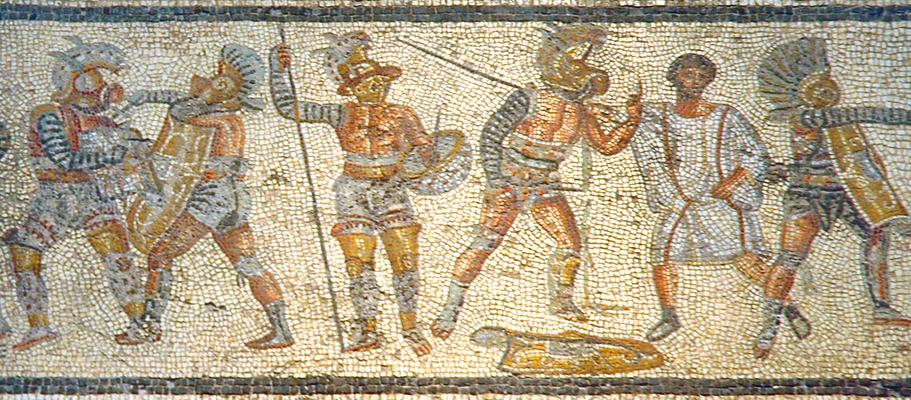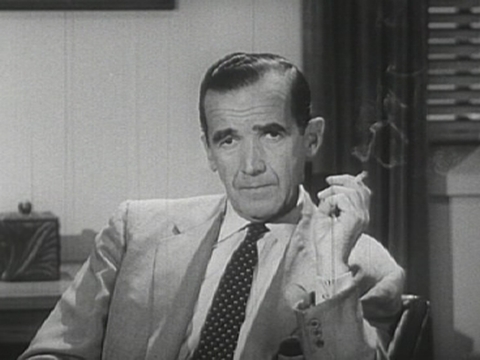Continuing my thoughts on games in public affairs, interactive games will soon become the leading method of persuasion and a key advertising medium. I know that is a sweeping statement. Those familiar only with the “Space Invaders” game generation will think I am nuts. The “Myst” people will see the merit in the statement, and those playing World of Warcraft would heartily endorse it, if they could divert their attention long enough from their games. Games are already a primary way that young people interact with data, each-other and the world in general. Even the EU now thinks that gaming might be good for young minds, so we better get used to the idea that games. For a funnier approach, take a look at this video.
Games’ pervasive persuasive ability is part of a continuum of imagined worlds so let’s digress a little to the more familiar previous persuasion champion – the play (or in the modern versions the movie or TV show). Sophocles and Shakespeare, Ibsen, Shaw, O’Neil and George Lucas & Steven Spielberg were/are masters of persuasion and they all knew what they were doing. Think of a play as a very long commercial message that you volunteer to watch. And remember that if a thirty-second commercial can sell you a product, don’t you think an hour and thirty minute play or a thirty minute TV show can sell you an idea or a lifestyle.
The writers, producers, directors and actors work together to sell you an idea. Sometimes it is innocuous; sometimes not. Shakespeare sold us all the Tudor version of English history and we bought that Richard III was nothing but a sneaky rat and Henry V was a great and brave hero. There is some truth to some of these characterizations, but they are fictional caricatures, not history. It was a conscious effort at propaganda, but it was so skillfully done that it is still part of the fabric of our society four centuries later. A skillful current propagandist is Oliver Stone. Many people draw their knowledge of JFK or Nixon from his movies and the images are strong. Even when you know the real history of the events, it is hard to get the image out of your mind. The living, moving image often trumps the truth of history. That is the power of the play/movie/TV Show.
The writers/producers/directors control ALL the characters. They can make the ones they don’t like unlikable or stupid. It is all a set up. They can structure events so that faults are revealed AND they can give characters the faults to be revealed. It is analogous to your own dream, where all the characters are you but they seem to be others and that is how you react. In every play, for persuasion purposes, the bad guys and the good guys are on the same side. They are all working for the guy who wrote the play. But the illusion remains. Directors sometimes disingenuously talk about characters as independent or they ridicule critics by pointing out that it is only fiction. Think of how you view familiar historical people or events. Now consider whether your image came from reading actual history or just watching it on TV.
BTW – the power of the producer has increased in Orwellian fashion. Now many directors go back to their movies and change them to fit the current situation and sensibilities. The “Star Wars” you saw in 1979 is not the same one you will see today. “He who controls the past controls the future and he who controls the present controls the past,” is the philosophy of Ingsoc and Big Brother in George Orwell’s “1984.”
But the power of the play/movie/TV show pales in comparison to a modern game. Viewer might get involved in a drama, but not matter how involved the couch potato gets, he is still a passive participant. None of his intelligence or perception will change the course of the investigation on “Law & Order” and none of his passionate tears will prevent one death on “House” or “ER” and the rerun will unfold exactly as it did the first time.
Not so in a game. The game provides some choices and the illusion of free will. What you do makes a difference to the outcome. That is why games are so addictive. You get to be a player in all the senses of that word. The irony is that BECAUSE you are making choices and seeming to go your own way, the power of persuasion is multiplied.
The game maker sets all the parameters. He can suspend the universal laws of physics. He can dictate the nature of human interactions. He can dictate the nature of human nature itself. Animals can become wise; inanimate object can be animated. The game maker can determine heroes and villains, but now they are also YOUR friends and enemies. Humans have a wonderful capacity to personify animals and objects. It is much easier when these things have elements of a real personality. Games create that.
I don’t think most game makers have an explicit social or political agenda, but they do have perceptions and prejudices that color their view of reality and so come to color the reality of many others.
I no longer play many video games and I date myself when I say that used to play Sid Meyer’s Civilization, a game from the 1990s. It is the only game that I really know well and it is familiar enough to many people, so let me use one example from that game. You can find examples from other games at this link.
Civilization requires you to develop from a society of Stone Age wanders into a future with space travel. As you develop various technologies, you get more options, both in civil and military matters. The game makers have determined the relative merits of particular advances and you get them as givens. You compete with other civilizations and you have to spend a lot of time defending yourself and there was some criticism that the game was too warlike, but so was human history.
The first rendition of the game the other civilizations had characteristics broadly correlated to their historical activities. For example, Hammurabi and the Babylonians were builders who spent relatively more time developing irrigation and road. Lincoln and the Americans were technologically savvy and likely to develop democracy. Shaka and the Zulus were less interested in technology and were more aggressive in attacking others. The most aggressive and dangerous people on the board were Genghis Khan and the Mongols. This was very un-pc and it disappeared from subsequent versions of the game.
So the message of the later versions was that the unpopular idea of national character or any sort of cultural determinism was completely useless. This is a very important point, BTW. IF applied to the real world, it would mean that over time you would expect the Swiss and the North Koreans to behave in the same ways and that their national character would have no predictive value. This, BTW, is the message of cultural relativism that you get in many universities. If you get it directly, you can counter with the Swiss-North Korean argument. If you imbibe it unconsciously as a teenager, it just becomes part of your world view.
But there is even a deeper message implicit in the game. You, as the leader of your civilization, have nearly complete knowledge. You make choices based on calculation or preference, but you can be logical. Real world leaders never have this option. There is always fog and uncertainty. So if players take a lesson from the game, they have way too much confidence in the ability of leaders to run the economy or engage in foreign policy. Conversely, if the leader does not deliver as promised, they are less likely to understand the constraints, unavoidable ignorance or mitigating circumstances.
Anyway, more and more we will use games to persuade and train. Games are artificial models, created by humans, bundled with their unconscious preconceptions and prejudices and often peppered with deliberate manipulation. As with any model, they represent one reality. They are not THE reality. But they sure seem like it to the players and I wonder what sorts of mind-sets the games are creating. Games can create an entirely artificial world, whose characteristics players may carry over to the real world they (sometimes) live in.















